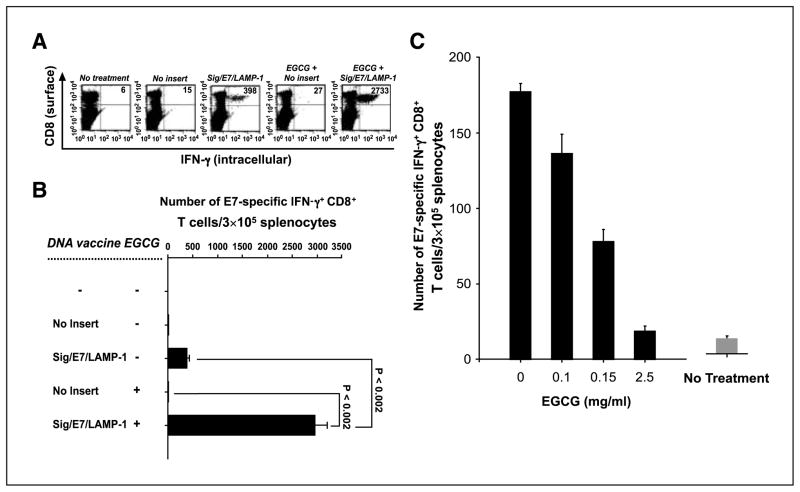Figure 3.
Combined DNA vaccination and EGCG treatment in the presence of tumor generated an enhanced E7-specific CD8+ T-cell immune response compared with monotherapy alone. C57BL/6 mice (five per group) were inoculated with TC-1 tumor cells (A and B) or 1× PBS (C) s.c. Three days later, the mice were vaccinated with either the Sig/E7/LAMP-1 DNA vaccine or a control DNA containing no insert. Mice received a booster of Sig/E7/LAMP-1 DNA vaccine 7 d after the first vaccination. A and B, in the presence of tumor, oral EGCG treatment (0.5 mg/mL) was initiated at the time of vaccination and continued for 14 d. C, in the absence of tumor, EGCG treatment was given at various concentrations (0, 0.1, 0.5, or 2.5 mg/mL) was initiated at the time of vaccination and continued for 14 d. Intracellular cytokine staining for IFN-γ was done followed by flow cytometry analysis to characterize HPV-16 E7-specific CD8+ T-cell immune responses in treated mice. A, representative set of the flow cytometry data. B and C, columns, mean number of E7-specific IFN-γ–secreting CD8+ T cells per 3 × 105 splenocytes; bars, SD. One representative experiment of three experiments done.

